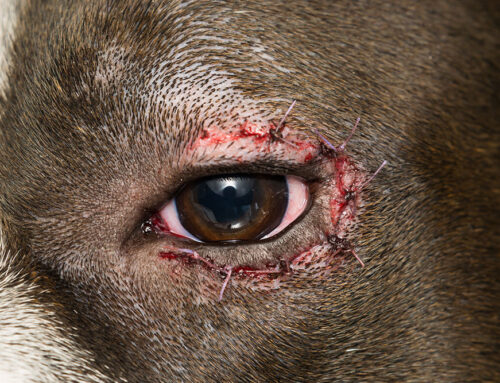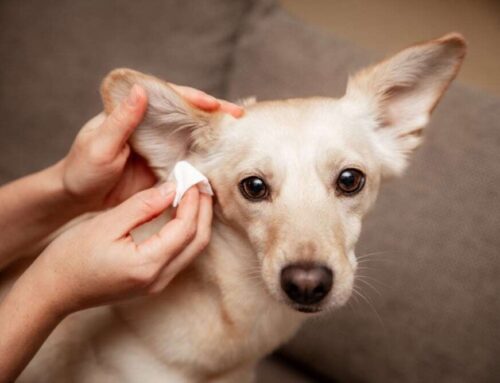Fall Allergies in Dogs: Symptoms, Triggers, and How to Help
As leaves fall and temperatures cool, many pet owners in the Central Valley notice changes in their dogs like constant scratching, paw licking, or recurring ear problems. If your dog seems itchier this time of year, it may not be a coincidence. Fall is a common allergy season for dogs, and the environmental changes can trigger flare-ups even in pets that were symptom-free during the summer.
At Mid-Valley Veterinary Hospital, we help local pets and their families navigate seasonal allergies with customized care, advanced diagnostics, and practical at-home solutions.
What Do Fall Allergies Look Like in Dogs?
Unlike humans, dogs rarely sneeze or get watery eyes as their primary allergy symptoms. Instead, allergies often appear through skin and ear issues that can quickly escalate into infections if not addressed.
Watch for these signs of fall allergies:
- Excessive licking or chewing of the paws
- Red, itchy, or inflamed skin
- Head shaking, ear scratching, or foul-smelling discharge
- Rubbing the face on furniture or carpet
- Bald patches or thinning fur
- Raised welts or hives
Seasonal allergies may also contribute to eye discomfort in some dogs. If your pet develops eye discharge, squinting, or frequent blinking, they could be experiencing conjunctivitis related to allergies. In more severe cases, scratching at the eyes can even lead to corneal ulcers, which require urgent treatment.
If your dog is displaying any of these signs, it’s important to have them evaluated. Other conditions, such as mites, food allergies, or infections, can present similarly. Visit our wellness and preventive care page to learn how early exams help us get ahead of chronic issues.
What Causes Fall Allergies in Orland?
In the fall, outdoor allergens rise while indoor exposure increases too. Pets are more likely to encounter irritants that cling to paws, settle into fur, or enter the home through windows and clothing.
Common fall allergy triggers include:
- Ragweed pollen, a potent irritant found throughout Northern California
- Mold spores, especially in damp leaves, wood piles, and compost
- Dust and dust mites, which increase indoors as windows close
- Fleas, which remain active in the region’s mild, damp fall weather
Even dogs who have done well all year may develop symptoms in autumn as the environment changes. Dogs with sensitive skin, food intolerances, or a history of allergies may be more prone to flare-ups during this transitional season.
How We Diagnose and Treat Allergies at Mid-Valley Vet
Every dog is different, and the first step is a thorough exam to rule out infections, parasites, or dietary causes. Once we’ve confirmed seasonal allergies are to blame, we build a treatment plan that combines short-term relief with long-term support.
Accurate Diagnosis Starts In-House
Our full-service diagnostic lab allows us to perform ear swabs, skin cytology, and blood testing on-site. When dogs present with ear infections, ear cytology helps us determine if bacteria or yeast are contributing to the inflammation. Identifying these organisms ensures your pet receives the most effective treatment.
In more complex or recurring allergy cases, we may recommend allergy testing through IDEXX to identify environmental triggers. This can guide future decisions about immunotherapy, environmental controls, or dietary adjustments.
Relief and Treatment Options
Allergy relief may include medications, skin treatments, supplements, and environmental control strategies, customized to your dog’s needs and the severity of their symptoms.
Medications and Topical Therapies
- Cytopoint®: An injection that provides 4 to 8 weeks of itch relief by blocking the neurological itch signal
- Apoquel®: A daily oral medication that reduces inflammation and itching
- Dechra shampoos, sprays, and ear cleaners: Medicated products designed to remove allergens and soothe inflamed skin
- Ear cleanings are vital for infection prevention. Here’s how to clean your dog’s ears: a step-by-step video guide
We carry these products in our in-house or online pharmacy, so your pet can begin treatment without delay.
Bathing for Better Skin Health
Regular bathing is one of the most effective and often overlooked ways to manage skin allergies. Bathing removes allergens, reduces inflammation, and prevents secondary infections.
We recommend:
- Using a Dechra medicated shampoo
- Bathing once a week (or more- ask us about your pet!) during allergy season
- Letting the shampoo sit on the skin for 10 full minutes before rinsing
- Drying the skin thoroughly with a towel to avoid additional irritation
This “contact time” allows active ingredients to work effectively, soothe irritation, and help break the itch-scratch cycle.
Laser Therapy for Healing and Inflammation
For dogs with chronic or severe inflammation, we may also recommend Class IV laser therapy. This drug-free, non-invasive treatment uses light energy to reduce pain, increase circulation, and promote tissue healing.
Laser therapy is particularly beneficial for:
- Inflamed paw pads or interdigital cysts
- Chronic ear inflammation
- Hot spots and skin lesions
This is a gentle, low-stress option that can be used alongside medical therapies for better overall results.
At-Home Tips for Managing Allergies
While veterinary treatment is essential, your home environment also plays a major role in keeping allergies under control.
Simple steps to reduce allergen exposure:
- Wipe your dog’s paws after every walk to remove pollen, mold, and debris
- Bathe weekly using the proper medicated shampoo and 10-minute contact time
- Vacuum carpets, rugs, and upholstery regularly to reduce dust and dander
- Wash pet bedding in hot water at least once a week
- Maintain flea prevention year-round, using products recommended by your veterinarian
Flea-related allergies are extremely common and often overlooked. Over-the-counter products are not always effective, especially in areas like the Central Valley where resistance is a growing issue.
When to Call the Vet
Some itching is normal. But if your dog is:
- Losing sleep or unable to settle comfortably
- Chewing or licking to the point of skin damage
- Developing open sores or chronic ear infections
- Acting irritable or uncomfortable
- Showing signs of eye irritation, paw swelling, or hives
Then it’s time to schedule a veterinary visit. Early intervention can prevent complications like infections, scarring, or long-term skin damage.
Help Your Dog Enjoy a More Comfortable Fall
Don’t let seasonal allergies interfere with your dog’s well-being. At Mid-Valley Veterinary Hospital, we offer in-house diagnostics, trusted allergy treatments like Cytopoint and Apoquel, medicated bathing protocols, and laser therapy to help your dog feel better as quickly as possible.
Request an appointment online or call us at (530) 865-5634 to speak with a member of our care team. Whether your dog needs relief from itching, ear infections, or inflamed skin, we’re here to help them enjoy fall with fewer symptoms and more tail wags.








Leave A Comment